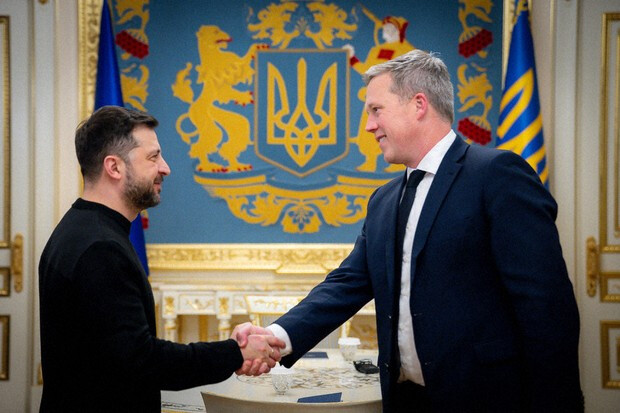
(C) mainichi.jp
Geneva, Switzerland – High-level US officials, including Secretary of State Marco Rubio, met with Ukrainian counterparts in Geneva on Sunday to discuss a US-drafted peace initiative aimed at ending the war in Ukraine. The talks come as the US accelerates its diplomatic efforts, with President Donald Trump reportedly setting the Thanksgiving holiday (November 27) as a deadline for Russia and Ukraine to accept the proposed terms.
The meeting, first reported by US outlets like Axios, included representatives not only from the US and Ukraine but also from key European allies, including Germany, France, and the United Kingdom, according to two US officials and three European sources.
Key US Delegation and Initial Proposal
The US delegation was led by Secretary Rubio and included figures such as Special Envoy for the Middle East Steve Witkoff and Secretary of the Army Dan Driskell. Driskell had previously delivered the draft peace proposal to Ukrainian President Volodymyr Zelensky in Ukraine on November 20, arriving in Geneva shortly thereafter.
A US official told Axios, "We continue to work with them to ensure this is the best possible proposal for Ukraine," adding that the plan has involved cooperation among the US, Ukraine, and Russia.
The peace plan, reportedly comprising 28 articles, was initially drafted after consultations between the US and Russia. It has been widely characterized as significantly more favorable to Russia than to Ukraine.
Russian Gains and Ukrainian Reservations
The proposal offers Ukraine security assurances, promising a "collective defense" mechanism involving the US and Europe, similar to the North Atlantic Treaty Organization (NATO). However, it reportedly stipulates that Russia would take full control of the entire Donbas region of eastern Ukraine and includes provisions to block Ukraine's future NATO membership.
This alleged asymmetry has sparked considerable backlash within the US, particularly among Democrats, who view the terms as an excessive reward for Russia's aggression.
Ukraine has also expressed profound dissatisfaction. Upon receiving the initial draft, President Zelensky stated on November 21 that the country faced a choice between "losing dignity or losing key allies and accepting the difficult 28 provisions or enduring a harsh winter." He stressed that Ukraine would "calmly work with the US and all partners and seek a constructive solution with key partners."
Focus on Potential Revisions
Against this backdrop of domestic US and strong Ukrainian resistance, the current high-level meeting is primarily focused on the potential for revisions to the existing peace framework.
President Trump himself hinted at the possibility of changes, telling reporters at the White House that the proposal presented to Ukraine was "No. Not my final offer."
A US official also confirmed to Axios that details of the plan could be altered from the initial draft, stating, "This is exactly why we are having the conversation [with Ukraine]. It is the literal definition of a negotiation."
The outcome of the Geneva talks will be closely watched, as any adjustments to the current draft will be critical in determining whether the US can secure buy-in from its Ukrainian ally and advance the prospect of a ceasefire before President Trump's self-imposed deadline.
[Copyright (c) Global Economic Times. All Rights Reserved.]




























